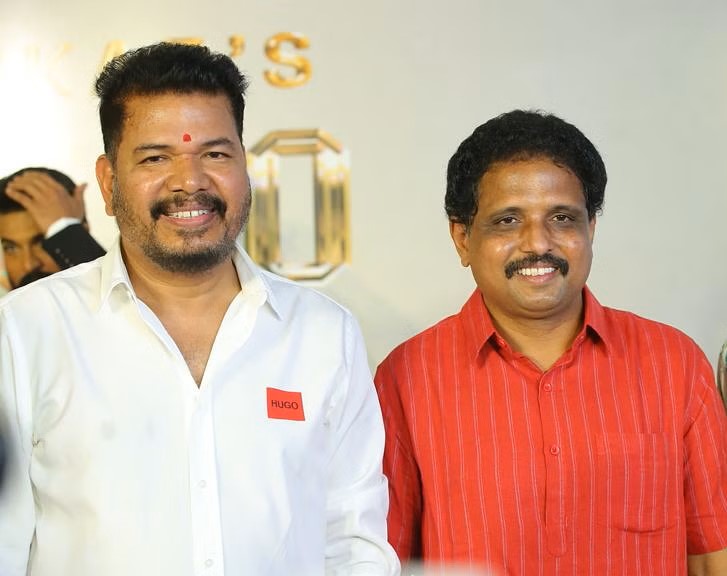What are Director Shankar's rights over Su. Venkatesan's Tamil novel *Veeraa Yuga Nayagan Vel Paari*?

Director Shankar's recent stance against unauthorized adaptations highlights the importance of copyright ownership in the creative industry. As the copyright holder of Su. Venkatesan's iconic Tamil novel *Veera Yuga Nayagan Vel Paari*, Shankar is entitled to the exclusive rights associated with the work. Under the Copyright Act of 1957 in India, when a work is created, the author (in this case, Venkatesan) initially holds the copyright. However, if a director or producer obtains the rights, they assume the responsibilities and privileges that come with ownership. This transfer of rights can be critical for filmmakers who wish to adapt literary works into visual mediums, allowing them to explore and present stories in new ways while respecting the original author's vision.
Recently, Shankar expressed his discontent regarding the unauthorized use of scenes from *Veera Yuga Nayagan Vel Paari* in a film trailer, widely speculated to be related to the upcoming movie *Devara*. He emphasized his frustration over key scenes from the novel being used without permission, urging filmmakers to respect creators' rights. Such unauthorized adaptations can dilute the impact of the original work and create confusion about its ownership, ultimately affecting both the author and the adaptations that might be legitimately produced in the future.
Additionally, the law stipulates certain exceptions and fair use provisions, allowing for criticism, comment, news reporting, teaching, and scholarship. However, what constitutes fair use can be ambiguous and often depends on the specific circumstances surrounding each case. This ambiguity can lead to misunderstandings and disputes over what is considered unauthorized versus fair use, further complicating matters for creators like Shankar who are trying to protect their intellectual property. However if we analyse the current copyright law in India, with regards to Director Shankar's concerns, it can be said that the challenge lies in enforcing copyrights effectively, especially in an industry where adaptations are common.
Moreover, the rapid rise of digital content and streaming platforms has intensified the need for robust copyright enforcement. As more creators venture into adaptations for various media, including films, web series, and more, the need for clear guidelines and adherence to copyright laws becomes paramount. This situation serves as a wake-up call for filmmakers to seek proper licensing agreements and for the industry to establish more transparent practices regarding adaptations.
In conclusion, Director Shankar’s advocacy for respecting copyright rights underscores the essential role that intellectual property plays in the creative sector. His concerns regarding unauthorized adaptations not only reflect the challenges faced by creators but also highlight the need for a deeper understanding of copyright law among filmmakers. As the landscape of media continues to evolve, it is crucial for all stakeholders—authors, directors, and producers—to engage in dialogues that respect and uphold the rights of original creators, ensuring that the creative ecosystem thrives without infringing on the contributions of others. This incident serves as a reminder of the importance of protecting artistic integrity while fostering an environment that encourages innovation and collaboration within the bounds of the law.

CONTACT US
2024 IP Popcorn, Inc. All rights reserved.